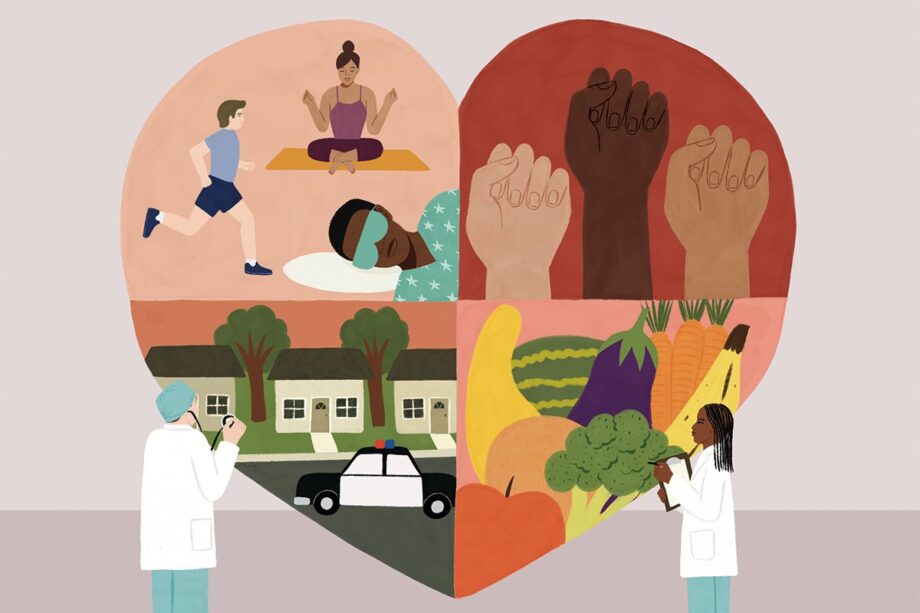Anika Hines, an assistant professor at the School of Population Health at Virginia Commonwealth University, researches the impact of stress on different communities and aims to address health disparities caused by stressful living conditions. Despite the complexity of stress, Hines believes that understanding its effects on health can lead to improved equity and solutions to combat related illnesses.
Recently, Hines collaborated on a study with researchers from Johns Hopkins School of Medicine, the University of Alabama, and other institutions. Their findings, published in the JAMA Network Open medical journal, illustrate how stress from living conditions can exacerbate disparities in heart health among racial groups. The study revealed that Black adults facing higher levels of stress from neighborhood safety and quality, social interactions, and discrimination experience poorer cardiovascular health outcomes compared to white adults.
Although Hines focuses on the broader implications of her work, her interest in health inequities began early in life. As a child, she observed the disproportionate health outcomes of Black individuals, which sparked her passion for researching and addressing these disparities.
Her goal is to influence policy and create change within communities to address the underlying issues affecting health outcomes. In her research, Hines examines the impact of stress on health disparities, particularly in cardiovascular health, aiming to develop solutions to these challenges.
One of her recent studies, conducted in collaboration with other researchers, analyzed over 7,700 Black and white adults to understand the influence of neighborhood-level risk factors on heart health disparities. The findings indicated that external factors such as discrimination and neighborhood safety contribute significantly to the disparities in cardiovascular health between Black and white individuals.
Hines emphasizes the need to consider the impact of social experiences and physical environments on health risks, urging a shift in policy and clinical practices to address these factors. Her research takes a holistic approach, seeking not only to understand health inequities but also to propose and implement solutions to improve cardiovascular health outcomes.
For example, Hines leads the Equity in Cardiovascular Health Outcomes Lab, which investigates the causes of heart health inequities, and previously conducted a project called ‘Arts for Hearts’ to explore the effectiveness of art therapy in improving heart health in high-risk communities.
Ultimately, Hines aims to influence public policy to address the structural issues that perpetuate health disparities. Her research strives to highlight the impact of policies on living conditions and to develop measures that counteract past disadvantages, ultimately working towards a more equitable healthcare system.
While acknowledging the slow process of policy change, Hines remains committed to advocating for marginalized communities and believes that a focus on stress and lived experiences, coupled with data-driven approaches, presents an opportunity to accelerate progress in addressing health disparities.




